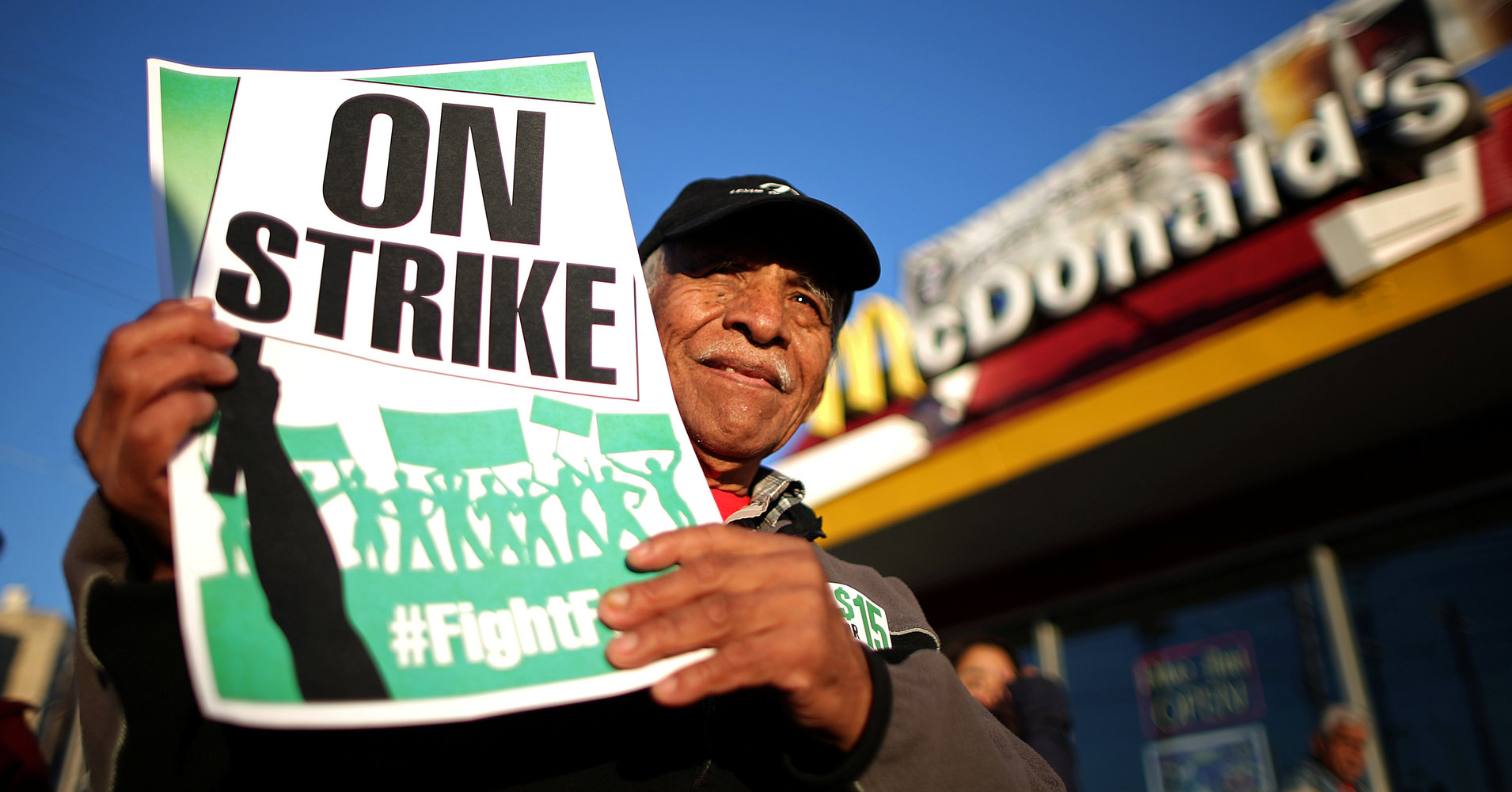[ad_1]

A group of African-American fast-food workers from Birmingham, Alabama, just won the latest round in a legal fight over the minimum wage that has national implications.
A ruling by an appeals court Wednesday breathes life back into a major lawsuit the workers brought against the state of Alabama in 2016. Joined by black lawmakers, ministers and the NAACP, they claimed the state’s mostly white legislature violated their civil rights by nullifying a new minimum wage increase in Birmingham, where most of the workers are black.
Their lawsuit was initially dismissed in court, but the 11th U.S. Circuit Court of Appeals ruled Wednesday that the workers have “a plausible claim” that the state law deprived “Birmingham’s black citizens [of] equal economic opportunities on the basis of race,” in violation of the 14th Amendment’s equal protection clause.
While the ruling upheld the dismissal of other claims in the lawsuit, the reversal means the lawsuit will go back to a lower court where the equal protection argument will be heard.
The Birmingham lawsuit is a flashpoint in the fight over so-called “pre-emption laws.” While the federal minimum wage has remained stagnant since 2009, progressives have succeeded in passing minimum wage raises at the city and county level, along with paid leave laws. But states led by Republicans have short-circuited those efforts by passing statewide bans on certain types of local ordinances.
According to the Economic Policy Institute, 25 states now have minimum wage pre-emption laws, the majority of them passed in just the last few years.
Democrats have called pre-emption laws undemocratic — as well as un-Republican, for the way they insert state government into local affairs. But the laws have given business groups something to cheer about since they are often tailored to block employment laws that would raise labor costs.
The [law] was introduced by a white representative from Alabama’s least diverse area, with the help of fifty-two other white sponsors.
]Judge Charles R. Wilson
The Birmingham case is perhaps the most contentious. As HuffPost previously reported, the Birmingham City Council passed a measure in 2016 to raise the city’s wage floor from the federal level of $7.25 per hour to $10.10. The Republican-led legislature in Montgomery then fast-tracked a pre-emption bill that would stop the Birmingham minimum wage from going into effect. It was quickly signed by the state’s Republican governor, Robert Bentley.
The pre-emption measure was originally sponsored by Rep. David Faulkner, whose town, Mountain Brook, is 97 percent white and wealthy. That stands in contrast to Birmingham, which is almost three-quarters African-American and has a poverty rate roughly twice the national level.
Black lawmakers argued that the pre-emption law disenfranchised black citizens. As the complaint to their lawsuit stated, “It perpetuates an official policy of political white supremacy that has been maintained in Alabama since it became a state in 1819, whereby white control is preserved by state government over the governing bodies of majority-black counties, cities, and educational institutions.”
Much of that argument clearly resonated with Judge Charles R. Wilson, the circuit judge who penned the decision issued Wednesday. Wilson said that racism “is no longer pledged from the portico of the capitol,” but is instead “cloaked beneath ostensibly neutral laws and legitimate bases.”
The racial undercurrents of the pre-emption law, Wilson went on, were clear: “The [law] was introduced by a white representative from Alabama’s least diverse area, with the help of fifty-two other white sponsors, and was objected to by all black members of the House and Senate. And it was accelerated through the legislative process in sixteen days with little or no opportunity for public comment or debate.”
[ad_2]
Source link

